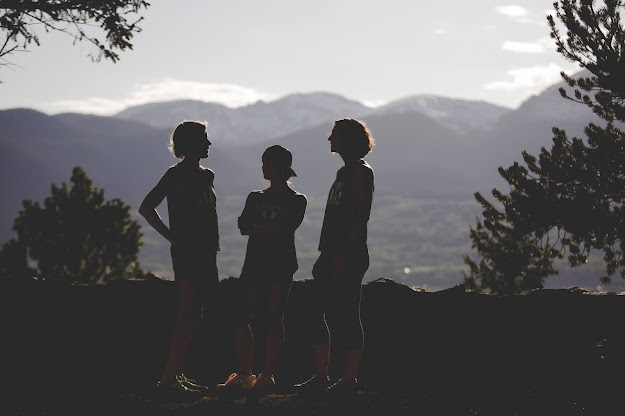For the first 31 years of my life, I've defined myself by what I do, what I've accomplished, and what I will accomplish. I locked myself into a rhythm of relentless forward progress that I was both proud of, and exhausted by.
Sitting on my bathroom counter is a framed note that I wrote myself on New Years. It's sort of like David Goggins' "accountability mirror," but prettier. I wanted to be reminded of my intentions for personal growth all year, so I put the note in a place that I would see every day. On the note, I wrote: "make time for stillness."
Ask and you shall receive.
I honestly don't think I would have known how to create my own stillness if the universe hadn't stepped in and delivered 2020. I didn't know how deep into the merry-go-round I was. I had created too much momentum.
The initial slamming of the breaks when quarantine orders went into place was jarring. But it was almost too dramatic to accept as the on-going reality for a little while. Then, as the days turned into weeks turned into months, restlessness and anxiety started to creep in. To some degree, we were forced to face the build-up that gathered when the pace slowed down. Or maybe it was already there, but we were moving too fast to see it.
The physical, mental, and emotional piles of garbage that we had been delaying sorting through came knocking on our doors. What I quickly came to understand were all the ways I rationalized holding back my vision for a future that I could more consciously create. I rationalized that my momentum would eventually land me somewhere I'd be happy with. I stayed just unconscious enough to keep up the pace without questioning why I was doing it or where I wanted to go. I rationalized being too unimportant, too busy, too satisfied, too ok-enough to keep going at the current rate without making changes.
What I learned from the stillness is that I wasn't ok-enough.
I didn't become any less uncomfortable talking about my vision, but I slowed down my thought for long enough to realize I had to share it despite the discomfort. And that is how I found my business partners: two smart, driven, fucking forces of women, with complimentary skillsets and talents, who believe what I believe;
Who were also not ok-enough with the status quo;
Who were willing to put it all on the line for something better, something truer, something more deeply real.
NYX Endurance officially launches on August 1st, 2020. We are an endurance company and we are 3 coaches who are damn good at what we do. If you want to be a faster, stronger, more capable version of yourself, we know how to get you there. But what will make us (and you) truly successful is the fact that we're starting this company in 2020: a year where anything that isn't designed with purpose, honesty, and raw humanity will crumble and dissipate. Only the deepest truths and the strongest connections will survive.
We feel more confident taking a risk and putting ourselves out there in 2020 because within our stillness,
Within our darkness,
We have found our voice.
NYX Endurance officially launches on August 1st, 2020. We are an endurance company and we are 3 coaches who are damn good at what we do. If you want to be a faster, stronger, more capable version of yourself, we know how to get you there. But what will make us (and you) truly successful is the fact that we're starting this company in 2020: a year where anything that isn't designed with purpose, honesty, and raw humanity will crumble and dissipate. Only the deepest truths and the strongest connections will survive.
We feel more confident taking a risk and putting ourselves out there in 2020 because within our stillness,
Within our darkness,
We have found our voice.
 |
| Embrace the darkness |






